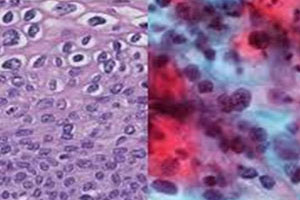Weak Immunity and Metastasis - Possible Link to Why Cancer May Return in Patients

Metastasis refers to the spread of cancer cells from a primary tumor to distant sites in the body. It is one of the most devastating aspects of cancer and accounts for over 90 percent of cancer patient deaths. An area of growing importance and study is the phenomenon of dormant metastasis. Numerous studies have shown that blood-borne tumor cells can enter the blood system and get distributed throughout other organs and areas of the body. The mechanism by which tumor cells use to travel throughout the body is still being studied.
Some researchers have found that tumors may metastasize by reactivating a long-dormant protein used in embryonic development to allow cells to move throughout the embryo and relocate them to different tissues. This protein is typically shut off, permanently, after this embryonic development phase. However, by reactivating this protein, tumor cells may hijack and commandeer its cellular processes and use it to spread throughout the body.
Once they have moved to other areas of the body, these metastatic tumor cells may lie dormant. Eventually, they may lead to tumor recurrence years or even decades after an apparently successful treatment. Often it can lead directly to advanced or stage 4 cancer. We presume this process is occurring or will occur, until proven otherwise. That way we can prepare your treatment to be successful in the short-term with an eye of protection on your future as well.
Don't Let Cancer Cells Become a Sleeping Giant
How tumor cells enter and escape dormant states is yet to be fully understood. Some research has shown that removal of the primary tumor may actually trigger the metastasized tumor cells' escape from dormancy by releasing growth factors and angiogenic factors as well as by catalyzing a reduction in apoptosis.
Researchers are still examining whether dormant tumor cells are in cell-cycle arrest or whether they are dividing and being killed at the same rate as they're dividing. One reason these cells may escape chemotherapy is because they are not dividing. Chemotherapy tends to target rapidly dividing cells. Conventional treatments and plans, including all those of major hospitals, employ a "go home, watch, wait and see" approach. We implement specialized, aggressive treatments to deal directly with micro-metastasis. The more years you maintain remission, the more cancer free you really become.
What Cancer Types are at Risk for Dormant Metastasis?
Cells that escape dormancy and cause cancer recurrence are common in melanoma and breast cancer and have also been observed in lymphoma, leukemia, head and neck cancers, as well as colon cancers. For other cancers, such as prostate cancer, late recurrences have also been seen clinically. For example, we have seen men that were thought to have cancer cures because they surgically removed their prostrate altogether while the tumor was intact. Yet 3 to 10 years post-surgery their PSA began to escalate. It becomes critical to understand that this can happen to most cancers and patients need a complete and long-term cancer treatment to obtain vital lifetime success.
Immunity Deals Best with Dormant Metastasis and Stage 4 Cancer
The immune system plays a significant role in keeping metastasized tumor cells dormant. Research shows that suppressing the part of the immune system responsible for adaptive immunity, may result in late development of rapidly growing cancers. On the other hand, cells that are held in a dormant state are under the control of an immune response that prevents further growth and actually programs the cells to kill themselves.
For this reason, dormant metastasized cancer cells may indeed be used as a way to prevent cancer recurrence by priming the immune system to respond to such cells and prevent further growth by keeping them dormant. Thus, residual tumor cells may be kept under control through passive and active adaptive immunization. In conclusion, the immune system ultimately serves as both the first and last lines of defense against cancer.
In 2008 we received approval for Phase I drug study using the patient's own system to fight cancer.
Controlling Your Immune System in Stage 4 Cancer
Cytokines are one possible way to control metastasis. Cytokines are specific immune modulators, and each modulator has a different role in immune system function. The cytokine IL-12 is a major activator of natural tumor-killing cells and has been shown to mediate anti-proliferation, anti-metastasis and anti-angiogenesis activities. Cytokines may also be used as an anti-angiogenic agent for those cells that have escaped dormancy.
Cytokine therapy incorporates treatments that modulate cytokines to directly target and treat cancer patients. Targeted cytokine activation is only one of many approaches that can be used to help patients improve upon their results.
Enhancing immune function as a way to control dormant metastasis and thwart further cancer growth is an area of continued focus at Envita. Our Comprehensive Smart Oncology® program combines the best of oncology with aggressive natural therapies to take a proactive approach to controlling dormant metastasis and avoiding cancer recurrences.





















